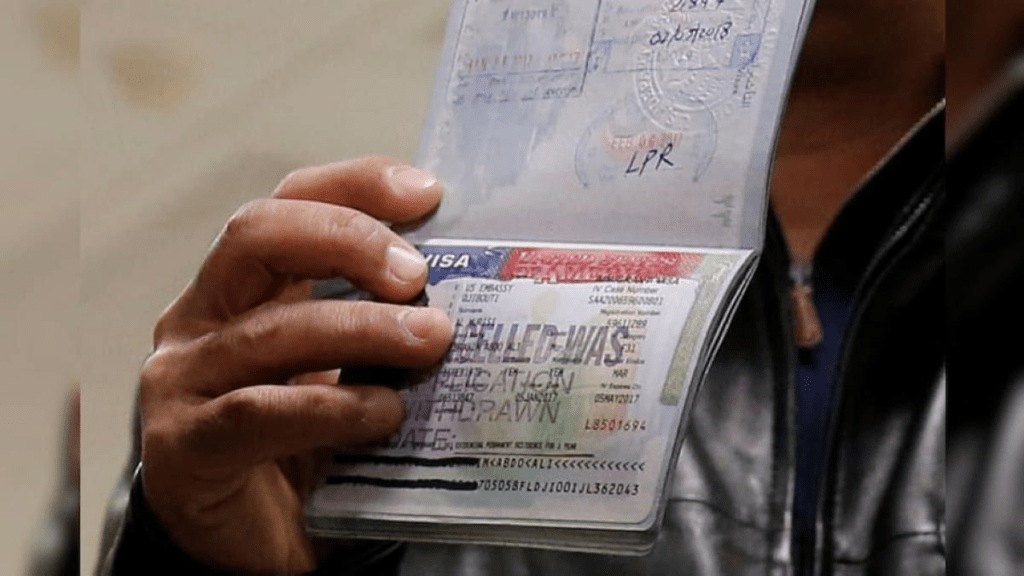US Visa: The Trump administration has begun an unprecedented review of the records of more than 55 million foreign nationals who currently hold valid US visas. The move, confirmed by the State Department and first reported by the Associated Press, represents one of the most sweeping expansions of President Donald Trump’s hardline immigration agenda.
Officials said that all visa holders are now subject to “continuous vetting” to ensure that they remain eligible. Should evidence emerge of a rule violation or other disqualifying factor, the visa could be revoked. Those already inside the United States would then be subject to deportation.
A State Department spokesperson explained, “The State Department revokes visas any time there are indications of a potential ineligibility, which includes things like overstays, criminal activity, threats to public safety, engaging in any form of terrorist activity, or providing support to a terrorist organisation.”
Social media scrutiny and “anti-American” views
The review comes alongside the administration’s decision to expand the criteria for immigration vetting, including checks for “anti-American” sentiments on social media. US Citizenship and Immigration Services (USCIS) announced that it will broaden its screening procedures to examine the online activity of applicants seeking to live or work in the United States.
Matthew Tragesser, a USCIS spokesperson, said, “America’s benefits should not be given to those who despise the country and promote anti-American ideologies. Immigration benefits – including to live and work in the United States – remain a privilege, not a right.”
Officials confirmed that the focus will be on detecting any online behaviour suggesting hostility to the United States, antisemitism, or support for terrorism.
Antisemitism and student visa revocations
Since January, the Trump administration has linked immigration eligibility to positions on US foreign policy, particularly attitudes towards Israel. The latest guidance instructs officials to examine whether applicants promote antisemitic ideologies or engage in activism considered contrary to US policy.
Students and academics have been among those affected. Authorities accused several universities and student groups of antisemitism and supporting terrorism for participation in protests against Israel’s military operations in Gaza. Activists have rejected the charges, saying they amount to suppression of political dissent.
In April, the administration revoked or altered the legal status of hundreds of international students, before reinstating many weeks later following legal and diplomatic pressure. Student visa interviews were also halted temporarily in May, and new vetting requirements were introduced in June, compelling applicants to unlock their social media profiles for review.
Thousands of student visas already revoked
On Monday, the State Department revealed that 6,000 student visas had already been revoked since Marco Rubio took office as Secretary of State in January. Of these, approximately 4,000 were withdrawn due to violations of state or federal law, including assault, driving under the influence, burglary, and alleged support for terrorism.
Officials argue that the measures are necessary to safeguard national security and protect public safety. Critics, however, warn that the expansive powers risk criminalising ordinary behaviour and could deter international students, researchers, and skilled professionals from choosing the United States.
The “continuous vetting” system means that visa holders may now be monitored throughout the duration of their stay, a shift from previous practice where checks were largely limited to the initial application process. Immigration lawyers have cautioned that the lack of transparency in determining what constitutes “anti-American” activity could create confusion and abuse.
With more than 55 million foreign nationals under review, the administration’s move aims to tighten immigration enforcement in both legal and cultural terms.

